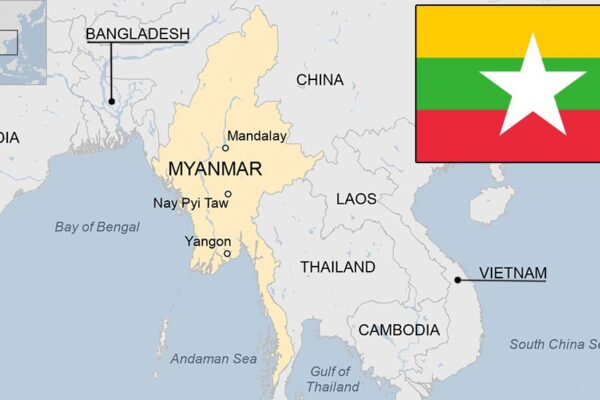Mira Rapp-Hooper is the Special Assistant to the President and Senior Director for East Asia and Oceania at the White House National Security Council, or NSC. During this week’s NATO Summit in Washington, she spoke with RFA Korean’s Lee Sangmin, touching on points related to increased cooperation between Russia and North Korea, following Vladimir Putin’s visit to North Korea last month. The summit included representatives from the Indo-Pacific Four, or IP4, an informal grouping of South Korea, Japan, New Zealand and Australia, and Rapp-Hooper said that it was important to include those countries in discussions with NATO, especially considering that the partnership between North Korea and Russia concerns security in both the North Atlantic and the Indo-Pacific. The interview has been edited for length and clarity. RFA: So how much are you concerned about the recent deepening relationship between Russia and North Korea? Rapp-Hooper: We are extremely concerned about the relationship between Russia and North Korea. Of course, we have been for about a year as that relationship has grown closer and closer, and it has become clear that both Russia and North Korea are exchanging extremely worrisome forms of support with one another. On the one hand, of course, we know that the (Democratic People’s Republic of Korea, or DPRK) has been providing Russia with millions of rounds of ammunition, as well as missiles that have been used on the battlefield in Ukraine to devastating effect fueling Russia’s war machine, and taking the lives of innocent civilians, all over the conflict. And that’s deeply disturbing. But one of the things that is also very troubling about this relationship is the fact that we know that Russia is probably providing the DPRK with technical assistance, sophisticated forms of support for some of its military programs. But those forms of cooperation are much harder to track. So while we know what the DPRK is giving to Russia, we know less than we would like to about what Russia is giving to the DPRK. And that is something that should concern not only the countries of the Indo-Pacific who care about peace and stability in the Korean Peninsula and beyond. Mira Rapp-Hooper, Senior Director for East Asia and Oceania, National Security Council, at the Asia Center in Washington, Sept. 13, 2023. (U.S. Institute of Peace via Flickr) But countries in Europe are increasingly understanding that this relationship affects them, too. Now, of course, this has all become more prominent recently because of Vladimir Putin’s visit to Pyongyang, when the two countries released a declaration that looks very much like an alliance treaty. But really, what this does is capture something that we knew the whole time, which is the fact that this is not just a marriage of convenience where these two powers are cooperating so that Russia can get help in its war against Ukraine. There is political buy-in at the highest levels, from both of these governments. The piece of optimism that I would offer today, however, is that it is not just the ROK, the United States and Japan who are worried about this problem. We have very good trilateral cooperation amongst the three of us to share intelligence and to coordinate our policy actions. But part of what you’re seeing here at NATO today is that all of our NATO allies also care about this problem, because Russia has brought DPRK technology to Europe in the form of ballistic missiles being used on the battlefield in Ukraine. So we’ve never seen our European allies more engaged in DPRK issues, more wanting to cooperate, to address, and limit, this relationship. And we are hopeful that that cooperation will have a stabilizing effect in the face of all of this destabilizing behavior. RFA: In what ways can NATO and its allies counter cooperation between North Korea and Russia? Rapp-Hooper: Well, there are, you know, certain areas where cooperation, unfortunately, is quite difficult to affect. We know that many of the shipments that take place between DPRK and Russia take place within their territorial seas or over rail lines. So there’s very few options for the international community there. But there are other areas, where we do cooperate, and we will continue to do so. And that relates to things like financial sanctions that may run at the heart of their cooperation, and other measures that we can take, such as intelligence sharing, information sharing that might allow one country to be more empowered to limit this cooperation wherever they can. There is also, of course, the role that we all play diplomatically, not just in putting pressure on both Pyongyang and Russia, but on additional countries, who might be able to take action to try to limit this relationship. The world is, of course, watching (the People’s Republic of China, or PRC) and the question looms large, what Beijing will do about this relationship, given that it is so destabilizing and not in China’s interests either. But we’ve yet to see a clear answer to that question. RFA: What kind of a role can China play in dealing with North Korea issues? Rapp-Hooper: That’s really up to China. In the past, the PRC has long played a role on the Korean Peninsula. Obviously, it is a key continued trading partner of Pyongyang and a longtime political partner. There is obviously a very close political relationship as well, between Beijing and Moscow – which is its own cause for concern. But there’s no doubt that if Beijing was interested in doing so, it could play a stabilizing and responsible role, to encourage in particular, the worst (aspects of the) DPRK-Russia cooperation to come to an end. But again, all eyes are on Beijing to see if it will make that choice. RFA: Why is it significant that the IP4 are participating in the NATO Summit? Rapp-Hooper: Our IP4 partners in the (Republic of Korea, or ROK), Japan, Australia and New Zealand have been at the last three NATO summits. And…




